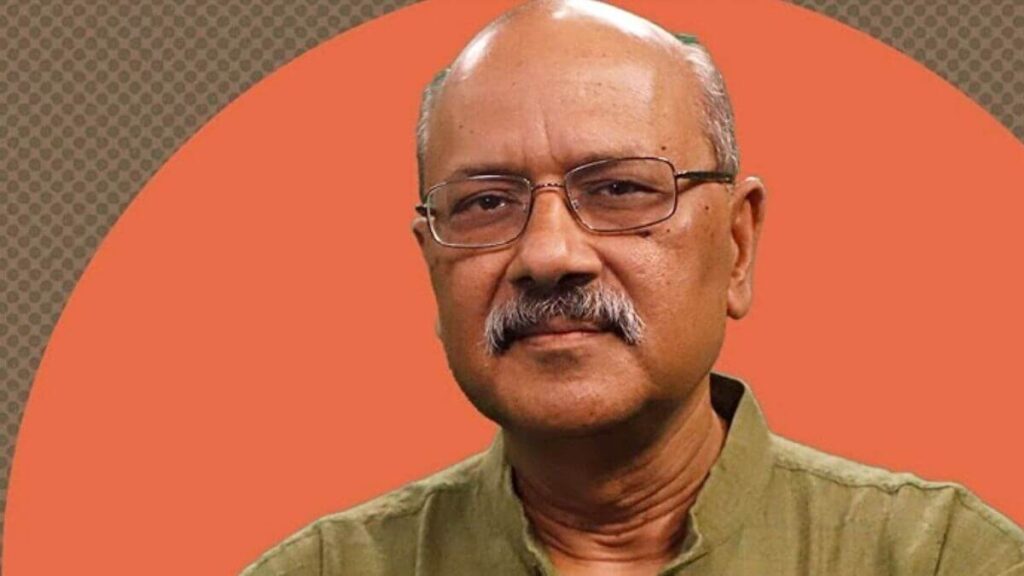
Hindutva Hypocrisy on Palestine
Mir Samreen
It’s almost poetic, in the most grotesque sense, that as homes are leveled and children’s screams echo through the ruins of Gaza, some in India are focused not on the carnage, but on conditions. In a recent article by Shekhar Gupta, the audacity to demand Palestinians sever ties with Kashmir in order to earn Indian sympathy, or any support for that matter, is as absurd as it is repugnant. It is as if the only way to deserve compassion while being carpet-bombed is to negotiate your identity with those indifferent to your plight.
Let’s unpack this for a moment. Palestinians, who have been starved, blockaded, bombed, and besieged for decades, are now being told they must recalibrate their struggle to distance themselves from Kashmir. Kashmir—a land equally under occupation, whose people have faced extreme state-sponsored violence, disappearances, Killings, and mass incarcerations. So now, in addition to struggling for their very existence, the Palestinians must engage in political theater to make their cause palatable to an India that grows more religiously polarized by the day.
Gupta’s argument is neither new nor surprising. It is part of a growing trend in India’s intellectual class to rationalize apathy or, worse, justify complicity with Israel. India’s cozying up to Israel is no secret. As bombs fall on Gaza, Indian arms and technology continue to flow into Israeli hands, used to maintain the siege and occupation. Yet Gupta has the audacity to demand that Palestinians break ties with their allies in the global south—Pakistan, Iran, the OIC. Perhaps it would be easier for him if the Palestinians could just go down on their knees and beg for mercy from those who, at least on paper, support them.
This conditional empathy, or rather, the lack of it, from certain sections of Indian society speaks volumes. As Indian-Israeli relations blossom into a full-fledged arms-trading bonanza, public sentiment has followed suit and grew disturbingly pro-Israel. It has given way to a communal, polarized society, heavily influenced by Hindutva ideologues who see Israel as a model for a Hindu-majority state that subjugates its minorities with military might and legal impunity.
It is not merely geopolitics that drives this indifference. It is the communalization of India’s internal politics, exacerbated in more open ways since the rise of the BJP. This is a country where minorities are demonized, lynch mobs are emboldened, and Muslims are often treated as outsiders in their own land. It is no wonder that support for Israel’s war crimes has become an easy sell to a public already conditioned to view Muslims—whether Kashmiri, Indians or Palestinian—as ‘the other.’
Indians, particularly under the current government, are not indifferent to Palestine because of some principled stance on geopolitics. They are indifferent because they have been conditioned to view any struggle involving Muslims through the lens of their own majoritarian insecurities. And now, that apathy is being dressed up as foreign policy wisdom. Gupta’s insistence that Palestinians must de-hyphenate themselves from Kashmir is laughable in its absurdity, but deadly in its implications. It reflects a broader shift, one where moral support for the oppressed is conditional on political convenience.
What Gupta’s article, and indeed much of India’s current foreign policy thinking, fails to acknowledge is that the Palestinian struggle is not a bargaining chip to be traded for the favor of India or any other nation. The occupation of Palestine and the occupation of Kashmir are intertwined not because of some grand conspiracy, but because both are manifestations of settler-colonialism, of states that see certain populations as obstacles to be removed rather than people to be heard.
To suggest that Palestinians must tailor their alliances to suit the whims of the Indian state or its people is as morally bankrupt as it is strategically ignorant. The fight for justice does not come with preconditions, and those who demand them only expose their own moral failures.
Editor's Pick

The Dream of a Martyr
The Dream of a Martyr Muhammad Faisal 1979 had begun. Kashmir looked abnormally normal, its calmness

Going the Israeli way
Going the Israeli way Muntaha Kirmani After the 22 April Pahalgam attack, Indian military has gone

South Asia’s Nuclear Flashpoint Has Reared its Head Again!
South Asia’s Nuclear Flashpoint Has Reared its Head Again! Muhammad Iqbal Tantray Kashmir has always been
